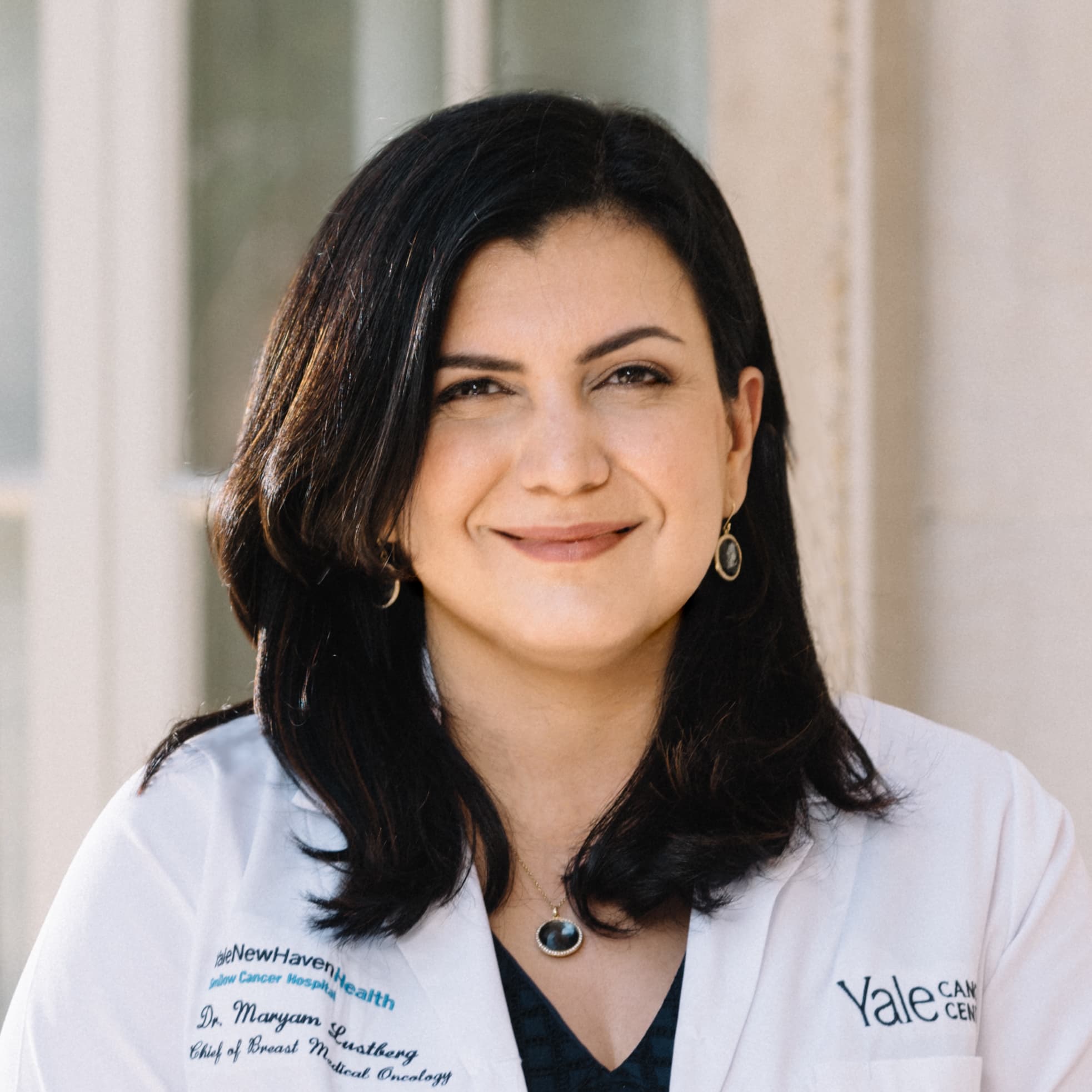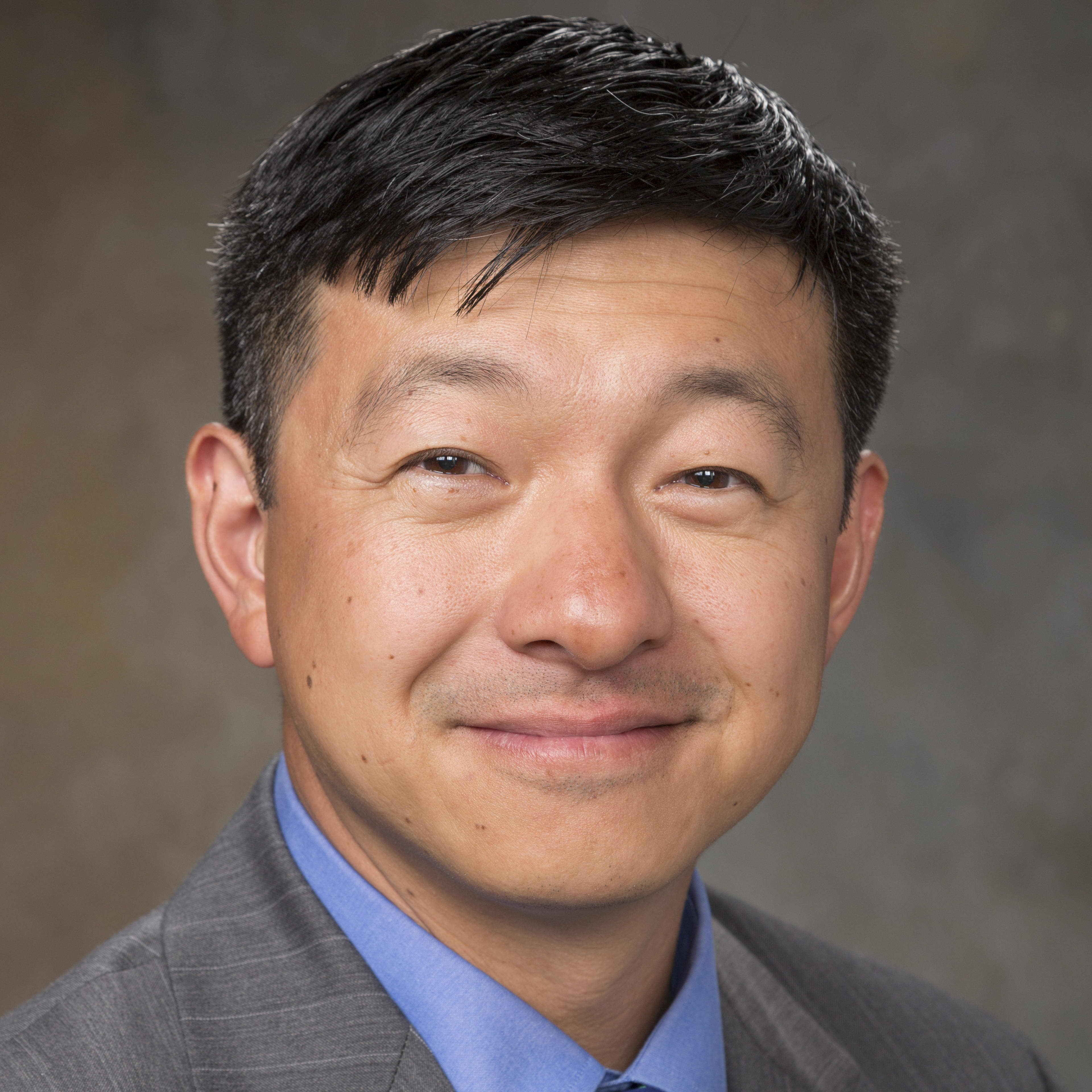Breast Cancer Symptoms
Definition
Breast cancer symptoms refer to signs and indications that may suggest the presence of breast cancer, a malignant growth that develops in breast cells. These symptoms can include a new lump in the breast or underarm, swelling, skin dimpling, and nipple discharge. The symptoms may vary depending on the type and stage of the cancer, and some individuals may not experience any symptoms in the early stages.
Related Specialists
Showing 3 of 50
Related Fact Sheets
Related Departments
Showing 3 of 38
Radiology & Biomedical Imaging
We are committed to providing patient-focused, evidence-based care to all of our patients, pairing clinical expertise with the latest advances in technology. We offer a comprehensive range of imaging services, and tailor each exam to meet each patient’s specific needs. Our board-certified doctors are national and international leaders in diagnostic imaging and advanced image-guided therapies, and they are dedicated to maintaining the highest standards of care in patient safety, quality, and satisfaction. We employ a multidisciplinary approach to care, and collaborate with physicians from all medical specialties to make the most accurate diagnosis and determine the best treatment options. Yale patients have access to highly advanced imaging equipment, including an intraoperative MRI/IR/OR suite, and 3D tomosynthesis. Our radiologists conduct advanced research in MRI, MRS, PET, interventional oncology, and image processing. Specialized care is offered in the following areas: Abdominal imaging Breast imaging Cardiovascular imaging Emergency and trauma radiology Neuroradiology Nuclear medicine and molecular imaging (including PET/CT) Pediatric radiology Thoracic imaging Vascular/interventional radiology Rapid, in-house subspecialist imaging interpretations Overnight coverage by three in-house attending radiologists at Yale New Haven Hospital Leader in 3D tomosynthesis mammography imaging and research Leader in screening breast ultrasound Comprehensive multidisciplinary lung cancer screening program with ultra-low-dose CT scanning Cardiac CoreValue planning service, providing a minimally invasive transcatheter aortic valve implantation option for patients with severe aortic stenosis MRI for pacemaker patients Ultrasound contrast and elastography imaging Dedicated peripheral vascular ultrasound Integrated musculoskeletal ultrasound device Subspecialized pediatric interventional radiology expertise Recognized expertise in management of primary and secondary liver cancer Molecular imaging for recurrent prostate cancer and the diagnosis of Alzheimer’s disease Advanced tumor imaging for optimizing best treatment outcomes DaTscan, a diagnostic test for Parkinson’s Disease Portable neuro Intensive Care Unit (ICU) computed tomography (CT) scanning Interventional radiology with state-of-the-art minimally invasive image-guided therapy, including targeted and precision cancer treatments, back pain treatment, and biliary stone laser treatment, among othersCenter for Breast Cancer
The Center for Breast Cancer at Smilow Cancer Hospital and Yale Cancer Center provides coordinated, state-of-the-art care for patients with benign and malignant diseases of the breast. For patients diagnosed with breast cancer , we offer dedicated care, innovative treatment options, and cutting-edge research. A great deal of progress in the detection and treatment of breast cancer has been made in recent years, and our physicians are on the leading edge of finding even better solutions. Women with a diagnosis of breast cancer are cared for by a multidisciplinary team of physician specialists, including radiologists, breast surgeons, medical oncologists, radiation oncologists, pathologists, and plastic surgeons. From the tranquility of the building, to our complementary therapy services, to the most sophisticated personalized therapies and equipment available, Yale is committed to tailoring treatment to our patients to ensure they have the best experiences possible during their time in our care. Breast Surgery Although many general surgeons perform breast surgery, dedicated breast surgeons have the experience and knowledge to handle difficult or unusual cases, and are generally more likely to understand the complexities of breast diagnosis and treatment. The surgeons at the Center for Breast Cancer at Smilow Cancer Hospital and Yale Cancer Center perform breast surgery exclusively, and are nationally known as leaders in their field. Yale surgeons were among the first to perform a lumpectomy instead of a mastectomy, and were instrumental in the development of noninvasive procedures like sentinel lymph node biopsy, intraoperative guidance by ultrasound, and advanced oncoplastic procedures. Our surgeons are experienced in cutting-edge techniques, such as skin-sparing and nipple-sparing mastectomy, and often work hand-in-hand with our plastic surgeons to offer women a variety of options for breast reconstruction. Medical Oncology Many patients with breast cancer also need medical therapy, such as chemotherapy and/or endocrine therapy. Our team of experts utilizes both standard chemotherapies and novel targeted therapies to attack the cancer precisely while minimizing harm to normal tissues. Our medical oncologists are nationally recognized for their contributions to breast cancer research. For example, investigators at Yale helped to elucidate the biology of a cellular receptor called HER2. As a result, our medical oncologists have been successful in developing treatment strategies for HER2-positive breast cancer, and have extended this expertise to provide effective therapies for triple-negative/basal-like and hormone receptor-positive breast cancer. They continue to study new treatments, and patients at Smilow Cancer Hospital have the opportunity to receive such novel therapies through clinical trials, many of which are not available elsewhere in Connecticut. New and complicated patient cases are discussed weekly by the entire team so thatCenter for Thoracic Cancers
The Center for Thoracic Cancers at Smilow Cancer Hospital consists of a multidisciplinary team of experts dedicated to providing evaluation of and treatment for patients with a thoracic malignancy, including lung cancer, esophageal cancer, thymoma, or chest wall tumors. Patients in Connecticut and beyond have access to nationally recognized expert clinicians, who provide an organized, collaborative approach to cancer care, as well as the latest technologies and treatments. Our team consists of a collaboration of specialty physicians, including medical oncology, radiation oncology, thoracic surgery, pulmonary medicine, digestive diseases, pathology, diagnostic imaging, and nursing. In addition to our expert clinicians, patients also receive comprehensive care to help with the physical, emotional, and psychological issues that are part of confronting cancer. Patients also benefit from the attention of the team's care coordinators, who make management of even the most detailed multidisciplinary treatment plan less complicated. Our team is active in clinical research, and focuses on developing advances to care in areas of thoracic oncology where the standard treatment needs improvement and where the optimal treatment approach remains unclear. To provide the best care, most of our patients are enrolled in a clinical trial where they can receive innovative therapy for their advanced disease, including immunotherapy, which was first used in clinical trials at Smilow Cancer Hospital. The Center for Thoracic Cancers offers second opinions that are easy, convenient, and all done remotely. Call (203) 200-LUNG for more information and learn how to schedule a second opinion appointment with one of our providers. Medical Oncology Our medical oncologists are nationally recognized for their leadership and expertise in lung cancer treatment and research, and are dedicated to offering personalized treatment options. Biomarker testing is often performed on the tumor to look for specific mutations that can be targeted by medication. There are currently FDA-approved lung cancer treatments for tumors showing abnormalities in EGFR, KRAS, ALK, ROS1, BRAF V600E, MET, RET , and NTRK genes. Recent studies conducted at Yale have led to FDA approval of drugs for the treatment of lung cancer, such as the immunotherapy drug Tecentriq (atezolizumab), which has been proven to improve patient survival for newly diagnosed NSCLC. This drug is designed to block PD-L1, a protein that was discovered by scientists at Yale and that has been instrumental in improving survival for lung cancer patients. Another FDA-approved drug, osimertinib, which stemmed from Yale Cancer Center and Smilow Cancer Hospital researchers, was approved for the treatment of adults with early-stage NSCLC with EGFR gene mutations. Surgery Many patients in need of surgery are referred for a minimally invasive surgery known as a video-assisted thoracoscopi



